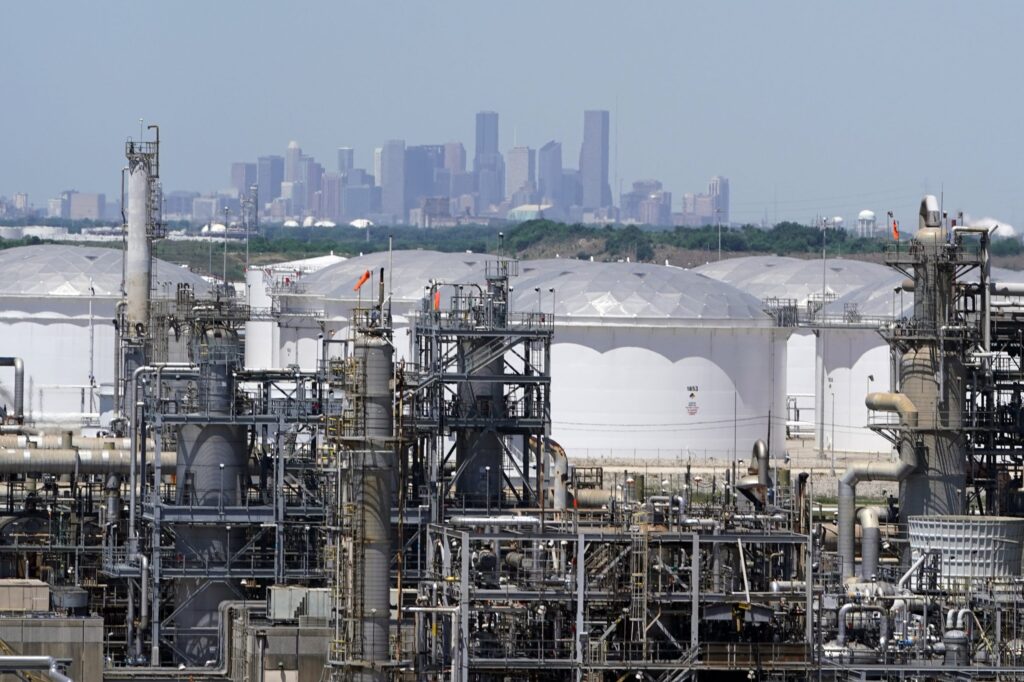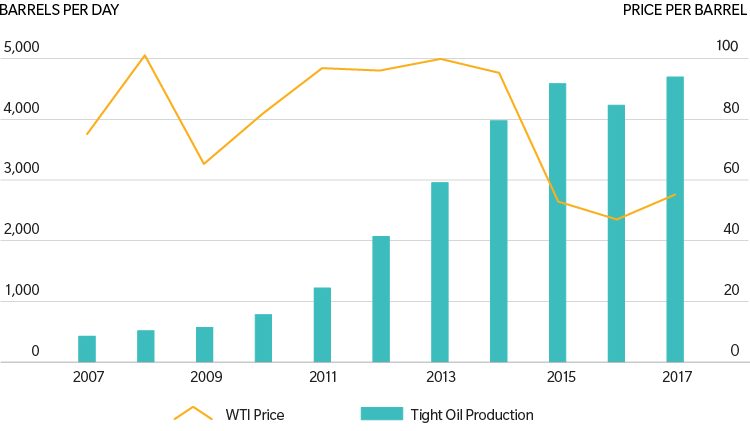Houston, the fourth-largest city in the United States, owes much of its meteoric rise to one key factor: the oil industry. What began as a modest city along the Gulf Coast rapidly transformed into an economic powerhouse, largely driven by the discovery and exploitation of oil. From reshaping its economy to molding its infrastructure and workforce, the oil industry has left an indelible mark on Houston’s identity and growth. Let’s take a closer look at how this industry fueled Houston’s evolution into a global metropolis.

1. Early 20th Century: The Discovery That Changed Everything
In 1901, the discovery of the Spindletop oil field near Beaumont, Texas, marked the beginning of the Texas oil boom. While Spindletop wasn’t directly in Houston, its impact reverberated across the region, turning Texas into a key player in the global oil market. Oil entrepreneurs flocked to Houston, lured by the city’s proximity to the Gulf of Mexico, which made it a strategic location for the transportation of oil.
Houston’s access to both railroads and waterways, including the development of the Houston Ship Channel in 1914, made it an ideal hub for refining and shipping oil. This period laid the groundwork for Houston to become the go-to city for energy companies and investors looking to capitalize on the burgeoning oil industry.
2. Economic Transformation: The Rise of an Energy Titan
The early oil discoveries quickly began to reshape Houston’s economy. What was once a city dependent on cotton, agriculture, and transportation shifted gears to become the nation’s leading oil hub. With oil came rapid industrialization, and new businesses popped up to support the drilling, refining, and transportation of petroleum.

Companies such as Humble Oil (now ExxonMobil) and Shell set up operations in Houston, creating thousands of jobs. The influx of wealth not only transformed the city’s economy but also expanded its workforce and urban infrastructure. As more oil companies established headquarters in Houston, the city became synonymous with energy production and a magnet for engineering and technical talent.
By the mid-20th century, Houston was home to the Energy Corridor, a sprawling business district where the world’s largest oil and gas companies had their offices. The sector’s dominance fueled the rise of real estate, banking, and construction, forever changing the landscape of the city.
3. The Boom and Bust Cycles: Resilience Through Oil
While oil brought incredible prosperity to Houston, the city also experienced the boom-and-bust cycles characteristic of the energy industry. The oil crisis of the 1970s and the subsequent downturn in the 1980s tested Houston’s economic resilience. Oil prices fell, companies laid off workers, and the real estate market took a significant hit. Yet, through these ups and downs, Houston learned to adapt.

The city diversified its economy, expanding into healthcare, aerospace, and biotechnology, yet oil remained at the core of its growth. In the 21st century, as global demand for energy has grown, Houston has bounced back, strengthened by its pivotal role in oil and gas production. The city’s resilience and ability to pivot while remaining a leader in energy is one of its defining traits.
4. Infrastructure and Urban Growth: Built on Oil Wealth
The oil boom had a profound impact on Houston’s infrastructure. With an influx of wealth and businesses came the need for better infrastructure. The construction of highways, skyscrapers, and modern facilities was largely funded by the profits from oil. Some of Houston’s most iconic buildings, such as the JPMorgan Chase Tower and the Williams Tower, were erected during the periods of economic prosperity driven by the oil industry.
The energy sector also played a crucial role in expanding Houston’s port system, making it one of the busiest in the world. The Port of Houston became a key asset in the global export and import of petroleum products, contributing significantly to Houston’s standing as a major economic hub.
Moreover, the wealth generated from oil allowed Houston to invest in education and research institutions, such as the University of Houston and Rice University, both of which became key players in energy research and innovation.

5. Cultural and Social Impact: A Global City Emerges
Beyond the economy and infrastructure, the oil industry has had a profound cultural and social impact on Houston. The influx of skilled professionals and workers from around the world helped shape the city’s unique cultural diversity. Houston is now one of the most diverse cities in the U.S., with over 145 languages spoken, a fact that can be traced back to its role as a magnet for energy companies and international trade.
The oil industry also contributed to Houston’s emergence as a global city. The headquarters of major oil corporations attracted international business and tourism, putting Houston on the map as a major player in global commerce. The city’s energy conferences and trade shows, such as the Offshore Technology Conference (OTC), draw thousands of international visitors each year, further cementing Houston’s reputation as a global leader in energy.
6. The Future: Moving Beyond Fossil Fuels?
While oil will always be part of Houston’s legacy, the city is now at a crossroads. With increasing global pressure to transition to clean energy and reduce reliance on fossil fuels, Houston has begun to evolve once again. The city is investing in renewable energy sources, such as wind, solar, and hydrogen, in an effort to diversify its energy portfolio.
Houston’s Climate Action Plan aims to reduce carbon emissions and position the city as a leader in the energy transition. Many of the same oil companies that helped build Houston are now driving this shift towards greener energy solutions. The rise of energy startups focused on sustainability signals that Houston is ready to embrace the future of energy, just as it did over a century ago when oil was first discovered.
Houston’s Growth Fueled by Oil
The oil industry’s impact on Houston is undeniable. From transforming its economy and infrastructure to shaping its social fabric, the influence of oil runs deep in Houston’s veins. As the city moves forward, it will continue to build on the foundations laid by the energy sector while looking toward a future that embraces both traditional and renewable energy. Houston’s resilience, adaptability, and leadership in energy make it a city like no other—a true testament to the power of innovation and industry.